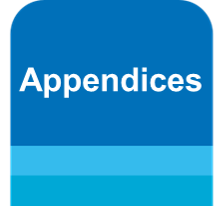Midlands Advancing Practice Guidance – A guide to implementing and funding advanced practice education and training in the Midlands – 2025/2026
Foreword
This Midlands Advancing Practice Guidance has been produced to support organisations in our region to develop advanced practice across services and to help build the advanced practice workforce of the future. If you have other questions not included in this document and need an answer prior to submitting a funding application, please contact the team via: england.apfac.midlands@nhs.net
Our investment is aligned with the NHS England Workforce, Training and Education Plan, NHS People Plan, and NHS Long Term Workforce Plan to ensure that across the region there are the right numbers of Advanced Practitioner staff, with the skills, values, and behaviours, available at the right time and in the right place, to deliver high quality care to our population.
Our Midlands multi-professional Advanced Practitioner workforce continues to grow, and our practitioners are making a significant contribution to leading and responding to population health priorities.
Our focus in the Midlands Region will be:
- Working in collaboration with our Integrated Care System (ICS) partners and our Midlands Workforce Training and Education team (WT&E), and Commissioning team to identify workforce demand, enable the transformation of patient care and invest in workforce education and training development.
- assuring the quality of advanced practice education and training by supporting the development of accredited training programmes and pathways, highlighting the supervisory needs of learners, supporting supervisors, and ensuring that quality standards are embedded in all we do.
The need to invest in our Advanced Practitioner healthcare workforce as well as the necessity to do things differently to meet population health needs in a sustainable manner for the future is noted in the (2023) NHS Long Term Workforce Plan. Advanced Practitioners are a key element in the transformation required. Their growth within the workforce being quality assured going forward will be of benefit to the whole spectrum of community, primary and secondary care services and across all scopes of practice.
We thank all our external and internal partners for their engagement in this ongoing development and we look forward to continuing to work with all, building the workforce of the future and delivering a shared vision of better care and better careers for all.
Midlands Regional Faculty for Advancing Practice Team
Visit our meet the team page to find out more about the team.
Contents
Annual Funding Timeline
Process: Faculty to send out funding communications and expressions of interest (EOI) file to all Advanced Practice Leads (this includes organisations, training hubs and nominated points of contact) with regards to 2025/26 funding offer.
Owner: NHS England
Month(s) in which activity will take place: April
Process: Advanced Practice Leads to complete the EOI file and submit by the closing date.
Owner: Organisation
Month(s) in which activity will take place: April – May
Process: Faculty review EOIs. Correspondence with Advanced Practice Leads may be required to resolve queries and gather additional information. If necessary, we may ask to meet.
Owner: NHS England
Month(s) in which activity will take place: May – June
Process: Faculty to communicate funding decisions subject to budget approvals with Advanced Practice Leads. Agreement to funding conditions will be required.
Owner: NHS England / Organisation
Month(s) in which activity will take place: June
Process: Subject to availability, a second round for EOIs opens for 2025/26 trainees. Advanced Practice Leads to complete the EOI file and submit by the closing date.
Owner: NHS England
Month(s) in which activity will take place: June – July
Process: Faculty review second round of EOIs. Correspondence with Advanced Practice Leads may be required to resolve queries and gather additional information. If necessary, we may ask to meet.
Owner: NHS England
Month(s) in which activity will take place: July – August
Process: Faculty to communicate funding decisions subject to budget approvals with Advanced Practice Leads. Agreement to funding conditions will be required.
Owner: NHS England / Organisation
Month(s) in which activity will take place: August
Process: Trainees for Autumn intake (September – October) to complete application process with university (if they do not already have a place confirmed).
Owner: Trainee
Month(s) in which activity will take place: May – July
Process: Trainees for Spring intake (January-March) to complete application process with university (if they do not already have a place confirmed).
Owner: Trainee
Month(s) in which activity will take place: October – December
Process: Advanced Practice Leads to complete any final outstanding trainee information for relevant intake. This will occur at two points during the year to cover Autumn and Spring intakes.
Owner: Organisation
Month(s) for process activity to take place: Autumn intake: June – July. Spring intake: November – December
Process: Validation of trainee course place with universities. This will occur at two points during the year to cover Autumn and Spring intakes.
Owner: NHS England / Higher Education Insitutions (HEIs)
Month(s) for process activity to take place: Autumn intake: July – August. Spring intake: December

Q1.1 What is an Advanced Practitioner?
Advanced practice is delivered by experienced, registered health and care practitioners. It is a level of practice characterised by a high degree of autonomy and complex decision making. This is underpinned by a master’s level award or equivalent that encompasses the four pillars of practice, leadership and management, education, and research, with demonstration of area specific clinical competence. Advanced Practitioner’s come from a range of professional backgrounds. The Multi-professional framework for advanced practice in England provides a clear and consistent approach to the development of advanced practice across England.
Advanced practice is focused on those practitioners working in roles with designated authority, autonomy, and accountability for engaging in clinical reasoning, and managing risk and uncertainty for patients, vested with scope for end-point decision-making, with direct responsibility for high level complex decision making, including complete management of episodes of care.
Q1.2 How do I know if I need an advanced practitioner role in my service?
For successful delivery of high-quality services that are focused on meeting person and population need, it is important that a structured workforce planning process is used to identify where advanced practice will have the greatest impact in a person’s journey through health and care pathways, and the types of advanced practice roles that may exist or need to be developed.
The advanced practice workforce should be developed and deployed in a way which meets population, and therefore service demand.
Many Workforce Planning and Modelling Tools exist, which will support you to understand the needs of your population and how to build a workforce that meets these needs. It may be helpful depending on your focus to have commissioners, HR, finance, management, and clinicians to contribute to these discussions.
Q1.3 How do I develop and Advanced Practitioner role?
The Advanced Practice Lead in your organisation should be aware of staff currently working in advanced practice roles and be able to help managers understand the need for these roles and how they may transform services. To establish advanced practice roles, you will need to articulate the business case for this investment, in collaboration with your Advanced Practice Lead, considering population and system need. Job descriptions should be mapped to the capabilities of the (2017) Multi-professional framework for advanced clinical practice in England and job plans should support the four pillars of advanced practice.

Q2.1 What commitment is expected of the trainee Advanced Practitioner whilst studying?
Trainees are required to attend university teaching days, practise clinical skills in their workplace and complete work-place based assessments of capabilities. They will also need time to meet their supervisor regularly to plan their individual educational needs and monitor their progress. The requirements of supervisors are explained in more detail in the (2022) Minimum standards for supervision document and (2020) Workplace Supervision for Advanced Clinical Practice guidance. It is expected that each trainee will dedicate many hours to independent study to become successful in achieving the qualification. The national number of hours of study and teaching expected is approximately 100 hours per 10 academic credits (which includes both taught hours and independent study hours). However, the actual time spent may be more, or less, dependent on individual learners. It is therefore important for advanced practice trainees to have sufficient work-based learning time to develop their advanced skills.
Q2.2 How much time will the trainee advanced practitioner be away from their job studying?
For trainees on MSc Advanced Practice Apprenticeship programme, generally, 80% of an apprentice’s time will be training in the workplace with 20% off the job learning. For fees-funded trainees on the MSc Advanced Practice Programme, employers are expected to provide the trainee with sufficient study leave and protected time for work-based learning per week. The University programme lead will provide information on the total amount of study days required.
Q2.3 I understand Advanced Practitioner training can include a multi-professional prescribing element, what happens if I already have it or am not eligible to undertake this element?
If a trainee already has a multi-professional prescribing qualification or is from a profession that is not eligible to undertake prescribing education and training, the university is likely to provide a choice of either module(s) or recognition of prior learning as alternative options. We advise that the trainee discusses their options with their university and employer.
Q2.4 What supervision is required?
Good supervision is a key factor for successful completion of the training. Trainees who are not well supervised can struggle and drop out. Each trainee Advanced Practitioner requires a Co-ordinating Educational Supervisor who has completed training in multi-professional supervision and is familiar with the requirements of advanced clinical practice training and working. Supervisors must be willing and have protected time (in their job plan) to support the trainee. NHS England Centre for Advancing Practice have published the (2020) Workplace Supervision for Advanced Clinical Practice Guidance and (2022) Minimum standards for supervision document to support organisations and Supervisors.
Q2.5 I have been asked to supervise a trainee Advanced Practitioner. How do I know if I am the right person?
Supervision is an essential element of training to be an Advanced Practitioner. If you have been asked to supervise a trainee Advanced Practitioner, it is important to ensure you have the experience, knowledge, and expertise to provide good quality supervision. There are tools that can help you decide if you are ready to supervise your trainee or if you need further training to be able to undertake this role. The Centre for Advancing Practice (2022) Minimum standards for supervision document contains a Supervisor Readiness Checklist to help you self-assess your readiness to supervise a trainee Advanced Practitioner. The (2023) Advanced Practice Supervisor Capabilities document contains further information about supervision in advanced practice and how to further support supervision develop supervisors within an organisation.

Q3.1 How does the Expression of Interest (EOI) file for Advancing Practice inform the funding process?
NHS England’s Midlands Faculty for Advancing Practice (Regional Faculty) will open the expression of interest for applications in early spring. Each employing organisation and Training Hub will be invited to apply for each individual trainee place. NHS England requires a single Advanced Practice Lead (or an individual responsible for Advanced Practice within an organisation or Training Hub) for each employer/organisation/training hub to submit the EOI file. This person will act as the key liaison for all enquiries relating to the applications. This is to ensure there has been appropriate scrutiny applied to the application, that appropriate support will be provided by the employer and that the development of advanced practice in this area is part of the organisation’s workforce planning.
Direct applications from individuals seeking funding will not be accepted. Only applications submitted through an organisation’s Advanced Practice Lead or named contact will be considered.
NHS England will review all applications and the indicative demand. Funding will be confirmed where possible, depending on the allocated budget. It may not be possible to provide funding for all applications received. Applications must include as much detail as possible including preferred University and course.
It is important to note completion of an NHS England EOI does not automatically confirm funding has been approved nor does it confirm a university place. Funding requests are required to align with and support overarching organisational workforce plans. It is expected that where individuals are receiving funding to complete an advanced practice programme of study, they will be enabled to function at advanced level as per the HEE (2017) Multi-professional Framework for Advanced Clinical Practice in England.
Employers are also required to complete the Centre for Advancing Practice’s Governance Maturity Matrix before submitting expressions of interest to ensure the trainee can be fully supported. If support is needed to complete the Governance Maturity Matrix, then please email england.apfac.midlands@nhs.net.
Q3.2 I am thinking of employing a trainee Advanced Practitioner, what is NHS England Midland’s funding offer?
NHS England via the Midlands Regional Faculty is supporting the development of advanced practice roles in 2025/26 by offering a package of funding and support for advanced practice trainees. There are three potential options and employers are invited to put forward expressions of interest for funding, subject to NHS England budget constraints, under one of the following offers available:
Advanced Clinical Practice Master of Sciences (MSc) Fees Funded Programme – funding for tuition fees for a period of three years for an Advanced Practice MSc. NHS England will pay the tuition fees to a maximum of £2666* per year (totalling a maximum of £8,000* for the three-year course). Currently, the tuition fees are paid directly to the university. In addition, a supervision grant is paid to the employer. This funding must be made available at service level to directly support the supervision of each trainee. The total amount for the supervision grant is to be confirmed for 2025/26, but for information, the 2024/25 supervision grant was £2758 per annum, for a maximum period of 36 months.
Advanced Clinical Practitioner Degree Apprenticeship – funding for a national Level 7 Advanced Practice Apprenticeship programme that has a typical length of 36 months, this is paid by the employing organisation via the apprenticeship levy. NHS England will provide a supervision grant, total amount to be confirmed in 2025/26, paid directly to the employer. This funding must be made available at service level to directly support the supervision of each trainee. For information, the 2024/25 supervision grant was £2758 per annum, for a maximum period of 36 months.
Advanced Clinical Practice Top-up – funding is available for those who have previously completed modules which are normally part of an advanced clinical practice MSc programme. The individual would undertake the additional modules to complete the full MSc mapped to the capabilities of multi-professional framework for advanced clinical practice in England. The Midlands rate of funding is £42.50* per credit, up to a maximum of 120 credits.
*This is the maximum contribution from NHS England Midlands, any additional fees must be covered by the employer
Funding for single modules or to support continued professional development (CPD) only without a designated role once training is completed will not be provided. Trusts may use alternative funding sources to support standalone modules and CPD for individuals.
Q3.3 I am considering employing a trainee Advanced Practitioner, why would I choose the apprenticeship route rather than the existing MSc Advanced Clinical Practice programme?
NHS England funding for advanced practice programmes is limited and therefore levy paying employers are encouraged to adopt the apprenticeship programme and consider apprenticeships as their primary option. This will enable support to be provided for an increased number of applicants. To view the Apprenticeship Standard for an Advanced Practitioner’s, click here. Employers should ensure that individuals put on to an apprenticeship route are committed to completing the full programme.
For trainees who undertake the apprenticeship programme entry onto each of the modules in the programme is guaranteed. However, for trainees who undertake a non-apprenticeship programme there is a risk of over subscription to individual modules, which could cause a delay to completion of the programme. NHS England needs to be informed if there is any change to the end date of the programme, as this may affect funding.
Q3.4 What is the supervision grant and what is the responsibility of the employer on receiving this?
The supervision grant is available to support trainees on a full advanced practice pathway, to contribute to organisational costs of supporting an Advanced Practitioner. It is based on the equivalent cost of 0.25 supporting professional activities (SPA) at consultant level per week.
A lack of supervisory support often results either in individuals withdrawing from the programme or seeking alternative employment; employers should consider whether they can fully support individuals before seeking funding for training. The supervision funding should be made available at service level to support individual supervision of the trainee. The supervision grant is directly linked to the quality of supervision and assessment of the advanced practice trainee.
The supervision quality should be dealt with at an organisational level but may be escalated to the Regional Faculty and managed accordingly for further investigation and could result in funding offers being withdrawn in the future.
The expectations of employers in return for the supervision grant are:
– Sufficient study leave for university education. It is not acceptable for trainees to be taking unpaid or annual leave for dedicated university days.
– Supervision provided by an appropriately trained supervisor. The expectation is that trainees will have a minimum of 0.25 SPA (1 hour) of supervision per week over the course of their training.
– Inclusion of postgraduate medical education department in discussion of supervision (where appropriate) to enable suitable job-planning.
– Sufficient work-based learning opportunities to gain clinical competence at an advanced level.
– Appropriate governance in place in line with the Multi-professional framework for advanced clinical practice in England.
The supervision grant must not be used for equipment or capital costs. For further information, please also see the conditions of funding information on page 13-14.
Q3.5 How and when does the supervision grant get paid to the employer?
A data validation exercise between NHS England, employers and universities will take place to confirm trainee enrolment. The supervision grant will be paid as below:
Trusts: The grant will be paid directly to the employer via the Education Funding Agreement (EFA) Finance Schedule after an individual has enrolled and started the programme.
Primary Care: The grant will be paid to the training hub via the Education Funding Agreement (EFA) Finance Schedule after an individual has enrolled and started the programme.
Q3.6 How is the supervision grant calculated for part time staff?
The apprenticeship and MSc programmes generally require the student to work for a minimum of 30 hours per week. All employers receive the same amount of supervision funding per learner irrespective of whether the student is working full time or part time.
Q3.7 Can a person fund their own advanced practice programme?
For most trainees, self-funding a master’s level advanced practice programme is not recommended. Advanced practice roles can only make the desired impact on patient care when integrated and fully supported by organisations as a strategic plan, linked to an advanced practitioner job role on completion of training, rather than individuals self-funding their own personal and professional development. Also, people who self-fund advanced practice education at a university cannot be assured of being able to access appropriate supervision and will not receive any financial support for enabling their supervision and assessment as they are not designated as completing advanced practice training within their employing organisation.
Q3.8 What are the minimum hours the employee needs to be employed, to be a trainee Advanced Practitioner?
For the apprenticeship programme it is a minimum of 30 hours per week. For the MSc Advanced Practice Programme, this will differ at each University but again, this will generally be a minimum of 30 hours. If the employer is recruiting a new person as a trainee Advanced Practitioner, then it is suggested they are recruited on a minimum contract of 30 hours. For existing employees, if they work less than 30 hours per week, please contact the relevant programme lead at the university to discuss their suitability for the programme.
Q3.9 What organisations can apply for funding?
NHS organisations such as Trusts and GP Practices (via their Training Hub) in the NHS England’s Midlands region are invited to submit their expressions of interest for advanced practice training for new learners. Other providers of NHS commissioned services will also be considered for advanced practitioner trainee funding.
Q.3.10 What are the conditions that need to be met to qualify for funding?
The decision by NHS England Midlands region to allocate advanced practice funding is based on confirmation of the following at Organisation, Trust, or Primary Care Training Hub level:
– Funding is only for programmes of academic study in advanced clinical practice for staff who are already registered as nurses, midwives, pharmacists, or AHPs to train as an Advanced Practitioner via a MSc Advanced Practice course (including apprenticeship or top up route). Please note the funding cannot be used to support training for First Contact Practitioner (FCP) roles, such as those within the Additional Roles Reimbursement Scheme (ARRS).
– Before using commissioning funding, organisations should firstly consider utilising levy funding and accessing MSc advanced practice apprenticeship courses, which are now widely available at some universities across the Midlands region.
– The individual should be undergoing advanced practice training and education in line with the requirements of the Multi-professional framework for advanced clinical practice in England.
– Appropriate workplace clinical support, supervision and assessment is to be provided by employers as required by the selected NHS England advanced clinical practice education programme.
– An advanced practice training post will be provided throughout the trainee’s education period.
– The employer should have in place a clear workforce development plan for the advanced practice role to demonstrate that it is one of the organisational priorities in line with their service requirements, so there is guaranteed employment in an advanced practice post on qualification by the sponsoring employer or within the Training Hub area (in the case of primary care).
– The employer commits to providing a suitable learning environment for the advanced practice trainees, in line with the requirements of the NHS England’s Quality Framework.
– Sufficient study leave should be provided to enable timetabled attendance at university to avoid advanced practice trainees having to take either unpaid leave or annual leave for university days.
– Suitable arrangements must be in place for supervision of advanced practice trainees in correspondence with the requirements of the Centre for Advancing Practice (2020) guidance for Workplace Supervision for Advanced Clinical Practice: An integrated multi-professional approach for practitioner development and the Centre for Advancing Practice Minimum standards for supervision document
– The employer must ensure that there is an appropriately qualified supervisor identified for each trainee Advanced Practitioner.
– Trainees are required to complete the NHS England Midlands Advancing Practice Trainee Data Collection Form.
Through accepting NHS England funding, you are confirming that the expectations outlined will be met for all trainees employed by your organisation / within your Training Hub area who are receiving such funding for advanced practice training. Where these conditions are not met, funding may be discontinued and where there is a pattern within an employer / Training Hub area of advanced practice trainees not being supported appropriately, advanced practice funding may be withdrawn from the employer. The provision of this funding for supporting advanced practice training will be evaluated and funded organisations will be asked for monitoring information as part of this planned evaluation process.
You should also keep the Regional Faculty informed of any changes regarding your funded students throughout the year, for example trainees that leave or take a break during their programme of study. This also applies to any trainees moving into an employing organisation within the Midlands region. In addition to these changes, any fitness to practice referrals should also be reported to the Regional Faculty.
Changes should ideally be reported by the trainee by completing the NHS England Midlands Advancing Practice Trainee Change of Circumstances Form. However, where the trainee is unable to complete this form, the organisational Advanced Practice Lead or equivalent, or university course lead can complete this on their behalf. We require as much notice as possible to be able to process changes. Funding is not guaranteed to follow a trainee if they move employer.
Q3.11 Is this funding for new or existing employees and does NHS England have a preference?
The funding offer is for both new and existing NHS staff and the Regional Faculty welcomes applications for both. However, for employers who are planning on recruiting a new member of staff, it is recommended financial commitment for the recruitment is obtained as soon as possible and with plenty of time prior to the university admissions process.
The employer should provide assurance that there will be an Advanced Practitioner post on completion of training, demonstrated in the service/division establishment by way of a job description and job plan, to avoid investing in the upskilling of staff who cannot then put their advanced skills into practice. Organisations are asked to confirm if a job description or job plan is in place when submitting their applications for funding. The Regional Faculty may ask for a copy of this.
Q3.12 How can we ensure new trainees are ready for advanced practice?
It is essential that anyone applying to become an Advanced Practitioner fully understands the expectations and commitment needed to train for this role. We have developed a Trainee Readiness Checklist that you can use in your recruitment and selection processes to help aspiring trainees assess if they are ready to become advanced practitioners.

Q4.1 How do I apply for NHS England funding?
NHS England’s Midlands Faculty for Advancing Practice will open the expression of interest applications in early spring. Each employing organisation and Training Hub will be invited to apply for each individual trainee place. NHS England requires a single Advanced Practice Lead (or an individual responsible for advanced practice within an organisation or Training Hub) for each employer/organisation/training hub to submit the application. This person will act as the key liaison for all enquiries relating to the applications. This is to ensure there has been appropriate scrutiny applied to the application, that appropriate support will be provided by the employer and that the development of advanced practice in this area is part of the organisation’s workforce planning.
Direct applications from individuals seeking funding will not be accepted. Only applications submitted through an organisation’s Advanced Practice Lead or named contact will be considered.
NHS England will review all applications and the indicative demand. Funding will be confirmed where possible, depending on the allocated budget. It may not be possible to provide funding for all applications received. Applications must include as much detail as possible including preferred University and course.
It is important to note completion of an NHS England EOI does not automatically confirm funding has been approved nor does it confirm a university place.
Employers can also complete the Readiness for Advanced Clinical Practice Checklists to support their applications.
Q4.2 Who should complete the trainee EOI form?
NHS England requires the Advanced Practice Lead (or an individual responsible for advanced practice within an organisation) to nominate their trainees for funding. This person will act as the key liaison for all enquiries relating to their trainee’s funding. This is to ensure there has been appropriate scrutiny applied to the process including agreement for recruitment (where needed) and alignment with organisational workforce development needs. Nominations from individuals seeking funding will not be accepted if not submitted through the organisation advanced practice lead.
Q4.3 What happens after I have submitted an EOI?
Once the EOI is submitted, it will be reviewed by the Regional Faculty team. Correspondence with Advanced Practice Leads may be required to resolve queries and gather additional information. If necessary, we may ask to meet. When EOIs have been approved, trainees will have to apply for their chosen course. We will be verifying with universities that trainees have been offered a place prior to autumn and spring intakes and then update the EOI to show if funding is confirmed.
Q4.4 Can I make changes to the application after the closing date?
This will be assessed on a case-by-case basis. It is usually possible to nominate a different trainee if the originally nominated trainee is not accepted onto a programme or reduce the number of trainee places required. It may not always be possible to change the number of places requested after the closing date. This is due to the large number of applications received and the validation exercise that must happen between NHS England and the university.

Q5.1 What universities in the Midlands region can individuals’ study at?
A list of universities that provide advanced practice programmes in the Midlands region is shown in Appendix 1. This should be viewed prior to making an application. Please note it is not a list of recommended universities nor is not an exhaustive list of universities offering advanced practice programmes. It may be possible for learners to study at other universities where exceptional circumstances are present. These will be considered on a case-by-case basis.
When completing the funding expression of interest, organisations are asked to indicate their intended university choice for delivery of training. Please note that this does not guarantee placements with universities. It provides the Regional Faculty with an indication of demand for university programmes across the Midlands.
If funding is agreed by NHS England, trainees are responsible for successfully applying to the university programmes on a first come first served basis.
Q5.2 What is a Centre for Advancing Practice accredited Advanced Practice MSc course?
The Centre for Advancing Practice is undertaking a Programme Accreditation process for universities offering existing level 7 advanced practice MSc and apprenticeship programmes and, who wish to seek NHS England recognition. Programmes must demonstrate they meet the capabilities across the 4-pillars, fully mapping to the Multi-professional Framework for Advanced Practice in England and meet the Standards of Education and Training set by NHS England. Each advanced practice programme is accredited separately rather than an institution being accredited as a whole.
Programmes/courses accredited by the Centre will be subject to a rigorous quality assessment process based on evidence submitted by the university. Accreditation signals to prospective learners, employers, patients, and carers that the education and training programme is deemed to meet the standards required by the Centre and promotes best practice. A trainee who has completed an accredited advanced practice programme can gain Centre for Advancing Practice recognition of the quality assurance of their advanced practice education and training by downloading the Centre’s ‘Advanced’ digital badge.
Q5.3 What if my course is not yet accredited by the Centre?
For programmes undergoing Centre accreditation or have confirmed their intention to go through this process, the Regional Faculty will fund these courses in good faith where the courses map to the Multi-professional Framework for Advanced Practice in England and so are most likely to achieve accreditation as best as can be ascertain prior to full assessment. However, trainees must be aware that there is a small risk that the course they are enrolled on may not achieve accreditation in such instances. In the unfortunate event that the course is not accredited, the trainee will not automatically be eligible for NHS England recognition with a digital badge on completion of the course. In any such instance, NHS England will work with the trainee, employer and university to identify next steps to best support the trainee in achieving their goals.
Q5.4 What are the university admission requirements for a trainee Advanced Practitioner?
We would recommend checking with the university directly on their specific entry requirements, which can often be found on their website. A list of advanced practice course providers in the Midlands can be found in Appendix 1. The website for the preferred university should be checked before applying.
Entry requirements will likely consider current professional registration, significant post-registration experience of professional practice, evidence the employee is / will be operating in a role that will offer the opportunity to practice at an advanced level within their profession and evidence of preceding professional and academic development at level 6 (undergraduate), including any international qualifications and appropriate educational attainment in levels of English and Maths.
Q5.5 What support can trainee Advanced Practitioners expect during their studying?
All university programmes will be taught by lecturers and expert clinical practitioners in their field who will offer dedicated academic support and guidance, and students will be allocated a named personal tutor. The university may also offer support through a dedicated librarian and a comprehensive student support service. Students also find their cohort of colleagues of immeasurable value as a support network. In the case of failing students, the matter would be discussed with the student in the first instance.
Q5.6 What happens if the trainee/ employee discontinues their advanced practice programme before it is completed?
It is recognised, from time to time, some students may have to suspend their study e.g., for long term sickness, personal reasons etc. Where a student is discontinuing their studying but will be returning to complete this, and have indicated the timescales to the university, NHS England will consider resuming funding when the student returns to study. However, these are reviewed on a case-by-case basis as it is dependent on whether the student can complete the course within the timescales available on their return and is subject to continued employer support.
Q5.7 What happens if an NHS England funded trainee Advanced practitioner changes their current employer for another employer?
This will be reviewed on an individual basis and no guarantee of continued funding can be provided to either the employer or employee. The funding is linked to a workforce need, not an individual’s personal development. Therefore, if the trainee moves from the original place of employment, the funding may stop.
If a trainee changes employer and stays in region, new employers must meet the funding conditions. The Midlands Faculty for Advancing Practice will carry out these checks and ensure the trainee is still in an advanced practice trainee role. If the trainee moves out of the Midland’s region, it will be the responsibility of the faculty in the new region to carry out these checks and determine if any funding can be provided on an individual basis.

Midlands Region Universities
The following list of universities is not exhaustive and there may be other advanced practice MSc programmes on offer within the region that do not appear on this list. For all questions about courses, programme content, fees etc. – please contact the relevant university in the first instance.
– Aston University
– Birmingham City University
– Coventry University
– De Montfort University
– Keele University
– Nottingham Trent University
– University of Birmingham
– University of Derby
– University of Lincoln
– University of Nottingham
– University of Northampton
– University of Staffordshire
– University of Warwick
– University of Wolverhampton
– University of Worcester
To check the accreditation status of an advanced clinical practice programme, please visit the Centre for Advancing Practice, Accredited Programmes page.
Appendix 2: Employer readiness for Advanced Practice
Appendix 3: Advanced Practice supervisor readiness checklist





